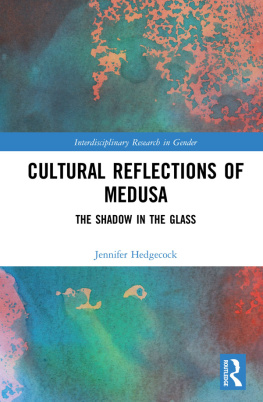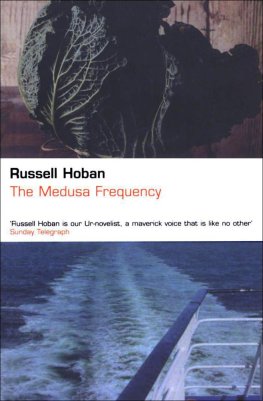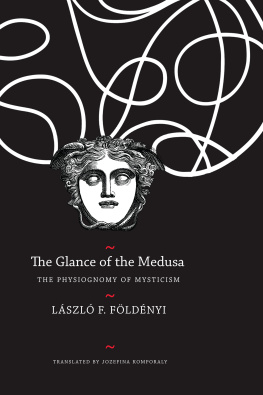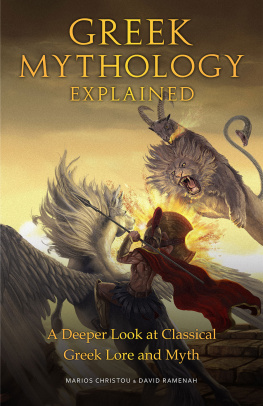Cultural Reflections of Medusa
This project studies the patterns in which the Medusa myth shapes, constructs, and transforms new meanings of women today, correlating portrayals in ancient Greek myth, nineteenth-century Symbolist painting, and new, controversial, visions of women in contemporary art.
The myth of the Medusa has long been the ultimate symbol of woman as monster. With her roots in classical mythology, Medusa has appeared time and again throughout history and culture. Hedgecock presents an interdisciplinary and broad historical cultural reflections of the modern Medusa, including the work of Maria Callas, Nan Goldin, the Symbolist painters and twentieth-century poets.
This timely and necessary work will be key reading for students and researchers specializing in mythology or gender studies across a variety of fields, touching on interdisciplinary research in feminist theory, art history and theory, cultural studies, and psychology.
Jennifer Hedgecock is Professor of English at Saddleback College and teaches Shakespeares plays, early British literature, and world literature. She has also taught at the University of California, Irvine and Michigan State University. Her publications include The Sexual Threat and Danger of the Femme Fatale in Victorian Literature (2008) and William Blake and The Road to Hell: Demystifying the Cultural Iconoclasm of the Hells Angels, in Rethinking Madness: Interdisciplinary and Multicultural Reflections (2019).
Interdisciplinary Research in Gender
Ungendering Technology
Women Retooling the Masculine Sphere
Carol J. Haddad
Ageing and Contemporary Female Musicians
Abigail Gardner
Sexual Violence and Humiliation
A Foucauldian-Feminist Perspective
Dianna Taylor
Gender, Sexuality and the Cultural Politics of Mens Identity in the New Millennium
Literacies of Masculinity
Robert Mundy and Harry Denny
Drag, Interperformance, and the Trouble with Queerness
Katie Horowitz
Re-writing Women as Victims
From Theory to Practice
Maria Jos Gmez Fuentes, Sonia Nez Puente and Emma Gmez Nicolau
Cultural Reflections of Medusa
The Shadow in the Glass
Jennifer Hedgecock
Representations of Working-Class Masculinities in Post-War British Culture
The Left Behind
Matthew Crowley
www.routledge.com/Interdisciplinary-Research-in-Gender/book-series/IRG
Cultural Reflections of Medusa
The Shadow in the Glass
Jennifer Hedgecock
First published 2020
by Routledge
2 Park Square, Milton Park, Abingdon, Oxon OX14 4RN
and by Routledge
52 Vanderbilt Avenue, New York, NY 10017
Routledge is an imprint of the Taylor & Francis Group, an informa business
2020 Jennifer Hedgecock
The right of Jennifer Hedgecock to be identified as author of this work has been asserted by her in accordance with sections 77 and 78 of the Copyright, Designs and Patents Act 1988.
All rights reserved. No part of this book may be reprinted or reproduced or utilised in any form or by any electronic, mechanical, or other means, now known or hereafter invented, including photocopying and recording, or in any information storage or retrieval system, without permission in writing from the publishers.
Trademark notice: Product or corporate names may be trademarks or registered trademarks, and are used only for identification and explanation without intent to infringe.
British Library Cataloguing-in-Publication Data
A catalogue record for this book is available from the British Library
Library of Congress Cataloging-in-Publication Data
A catalog record has been requested for this book
ISBN: 978-0-367-18347-9 (hbk)
ISBN: 978-0-429-06096-0 (ebk)
Typeset in Bembo
by Newgen Publishing UK
Medusa of the Snakes
They used your name
to frighten us,
But you
dont frighten me
No more this lie
No more this fear.
You belong to us again.
We call your name
to aid us.
and you
Greet us anew.
Medusa! Medusa! Medusa!
(Forfreedom 72)
When I started writing the first draft of my book about Medusa, my friend, Kim, asked me about the subject. After I explained that it was a study of cultural and artistic representations of Medusa, I was not surprised that her immediate reaction was one of fear and repulsion, invoking stereotypes of the serpent-haired woman. Following that conversation a week later, my friend confided that she had nightmares about Medusa, of a snake escaping from the Gorgons hissing hair and making its way to her pillow. When I explained to my friend that Poseidon, the sea god, rapes Medusa followed by Athenas curse that transforms Medusas beautiful hair into serpents and makes her face so frightening that men turn to stone by looking at her, my friend showed more sympathy than fright toward the Gorgon woman typecast as the mythical monster. By that time I was working on a more contemporary interpretation of the Medusean myth influenced by some of the major social movements reported in the news over the past few years, starting with sexual assault charges against Harvey Weinstein, sexual harassment accusations against a plethora of iconic men, the viral MeToo Movement, and later formal allegations of sexual assault and sexual harassment made by former doctoral student Nimrod Reitman against his advisor, feminist scholar Avital Ronell. Though I struggled with popular, conventionalized yet inaccurate notions about the Gorgon woman expressed earlier by my friend, these twenty-first century upheavals concerning the abuse of corporate and academic power leading to the sexual exploitation of women and men helped form a new perspective of Medusa. In our current cultural climate where men and women are unabashedly speaking out on a global level against sexual harassment, I believe that revisiting the Medusa myth leads contemporary society out of these personifications representing the Gorgon as a victim of womanhood or as a predatory monster. Instead she symbolizes victims of abuse seeking justice and protecting themselves. In fact, the role Medusa plays today largely surpasses this view of the silent victim reimagined into a predatory stereotype. Medusa still transfixes our attention, haunts the imagination, but she represents to us something far different compared to other historical interpretations. Though that very image of the terrifying Gorgon has sustained itself throughout history and contemporary culture, for many other women she evolves into a symbol of strength, and for me, a woman encouraging independence among other repressed women. In this progression of women speaking up in public and telling the truth in courtrooms and televised press interviews, it is figuratively Medusa coaxing men and women of sexual assault to be freed from the trappings of the silent victim, by whispering, dont be afraid.
When I consider contemporary ways in which women have attempted to gain power, share power, or at least refuse to be a victim to it, I am reminded of the story told by Emily Erwin Culpepper, Professor of religion. While writing her dissertation at night, Culpepper answered the door to a man who she believed was the friend of her neighbor. However, the stranger standing outside forced himself into her home with the intention of sexually assaulting her. Immediately, Culpeppers reaction turned into physical rage, so intense that it scared off her assailant. When she caught a glimpse of her contorted face in the mirror, she did not recognize herself, thus naming her reflection as that Gorgon spirit. It was her Medusa face that scared away a dangerous threat and saved her in an emergency. Culpepper recognizes the Gorgon / Medusa image as one face of [womens] rage, an expression that all women are capable of demonstrating (qtd. in Garber and Vickers 239). When I read her story, Culpeppers words invigorated me, viscerally leaving me with the feeling that I was right there with her, fighting off a stranger who dared to trespass, to violate, and to demoralize. But what disturbed me was how Culpepper felt after her attacker was gone. It is an emotion familiar to many women in spite of saying no, standing up for themselves, or fighting back, and that is the feeling of guilt and shame.









